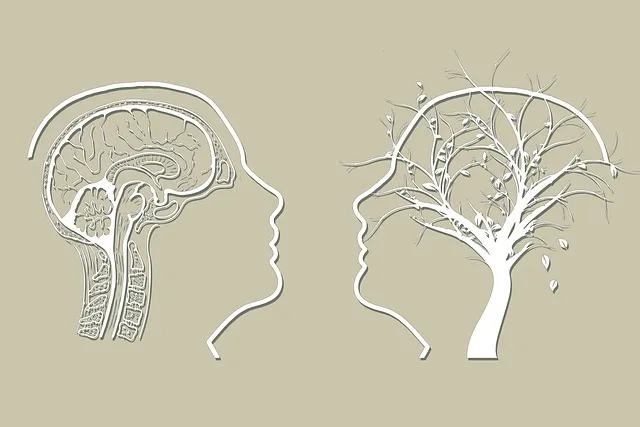Kaiser Permanente's Mental Health Initiative in Broomfield is a pioneering program that revolutionizes mental healthcare through advanced diagnosis, cultural sensitivity, and emotional intelligence training. The Broomfield Clinic uses innovative tools and evidence-based practices to improve diagnosis accuracy for complex mental health issues. By integrating holistic approaches like mindfulness, meditation, and modern media (e.g., podcasts), they empower patients to manage their mental wellness. The initiative also emphasizes the use of technology, such as AI and machine learning, along with expert judgment, and focuses on improving professionals' resilience through continuous training, ultimately enhancing diagnostic capabilities and tailoring treatments for better patient outcomes, not just in Broomfield but potentially across all Kaiser Permanente services.
Mental illness diagnosis accuracy is a critical aspect of healthcare, and organizations like Kaiser Permanente are at the forefront of improvement efforts. This article delves into the Kaiser Permanente Mental Health Initiative, highlighting its impact on enhancing diagnostic procedures through innovative strategies. We explore the success of the Broomfield Clinic in improving accuracy, focusing on their unique approach. Additionally, we discuss future directions for continuous improvement, underscoring the importance of these efforts in transforming mental health care.
- Understanding the Kaiser Permanente Mental Health Initiative
- The Impact of the Broomfield Clinic on Diagnosis Accuracy
- Innovative Strategies for Enhancing Diagnostic Procedures
- Future Directions: Continuous Improvement in Mental Illness Diagnosis
Understanding the Kaiser Permanente Mental Health Initiative

The Kaiser Permanente Mental Health Initiative is a notable effort to enhance mental illness diagnosis accuracy and overall patient care. This program, centered around the bustling community of Broomfield, aims to revolutionize mental healthcare through various strategies. By focusing on improving diagnostic methods, they strive to ensure that individuals suffering from conditions like anxiety relief receive timely and accurate evaluations. The initiative prioritizes cultural sensitivity in mental healthcare practice, addressing the diverse needs of patients from different backgrounds.
This comprehensive approach involves training healthcare professionals to recognize subtle symptoms and incorporate emotional intelligence into their practices. The goal is to create a supportive environment where individuals feel comfortable seeking help without facing barriers due to cultural or social factors. With these efforts, Kaiser Permanente aims to make a significant impact on the accessibility and quality of mental healthcare services in Broomfield and potentially beyond.
The Impact of the Broomfield Clinic on Diagnosis Accuracy

The Broomfield Clinic, a pioneering center under the umbrella of Kaiser Permanente mental health services, has made significant strides in enhancing diagnosis accuracy for mental health conditions. By integrating advanced assessment tools and evidence-based practices, the clinic aims to improve patient outcomes and ensure more precise diagnoses. This initiative is crucial, given the complex nature of mental wellness issues, which often require tailored interventions.
Through its comprehensive approach, the Broomfield Clinic offers a range of services including Confidence Boosting programs designed to empower individuals with coping strategies, Social Skills Training for better interaction, and Mental Wellness Coaching Programs that facilitate personal growth. These efforts collectively contribute to a more holistic understanding of mental health, fostering an environment where accurate diagnoses can be made, and effective treatment plans developed, ultimately enhancing the quality of life for those seeking support at the Kaiser Permanente mental health number Broomfield.
Innovative Strategies for Enhancing Diagnostic Procedures

Innovative strategies are revolutionizing mental health diagnosis procedures at organizations like Kaiser Permanente, particularly in their Broomfield location. One game-changing approach involves integrating self-care practices into diagnostic frameworks, recognizing that individuals’ ability to manage stress and maintain mental wellness is a critical indicator of overall health. This holistic view encourages patients to participate actively in their care through education on effective self-care techniques, such as mindfulness, meditation, and exercise regimens.
Additionally, the Mental Wellness Podcast Series Production has emerged as a creative tool for engaging with at-risk populations and disseminating information about mental illness. These podcasts offer accessible platforms to discuss various aspects of mental health, including symptoms, treatment options, and recovery stories. By leveraging modern media, Kaiser Permanente reaches a broader audience, fostering open conversations around mental wellness and promoting earlier interventions—key factors in enhancing diagnostic accuracy and improving patient outcomes.
Future Directions: Continuous Improvement in Mental Illness Diagnosis

The journey towards enhancing mental illness diagnosis accuracy is an ongoing process that requires continuous innovation and adaptation. Future efforts should focus on integrating advanced technologies, such as artificial intelligence and machine learning algorithms, to analyze vast amounts of data and identify patterns indicative of various mental health conditions. This approach can lead to more precise diagnoses, especially when combined with the expertise of mental health professionals. For instance, Kaiser Permanente’s mental health number in Broomfield could serve as a model for implementing AI-driven assessment tools while maintaining patient confidentiality and privacy standards.
Additionally, resilience building initiatives should be at the forefront of these improvements. Training mental health professionals in comprehensive risk assessment techniques and risk management planning will enable them to make more informed decisions. By fostering a culture of continuous learning and adaptation, healthcare providers can enhance their diagnostic capabilities, ultimately improving patient outcomes and ensuring effective treatment plans tailored to individual needs.
The journey towards improving mental illness diagnosis accuracy is an ongoing process, as highlighted by Kaiser Permanente’s commitment through its Mental Health Initiative and the successful outcomes at the Broomfield Clinic. By implementing innovative strategies, such as advanced assessment tools and multidisciplinary teams, the field can continue to enhance diagnostic procedures. As research progresses, focusing on diverse populations and cultural competencies, we move closer to ensuring precise and timely diagnoses for all. The Kaiser Permanente mental health numbers underscore the impact of these efforts, promising a brighter future for effective treatment and support.






